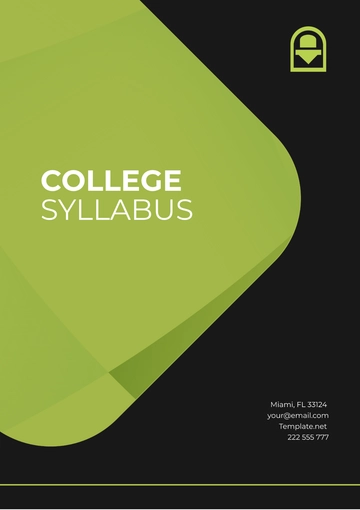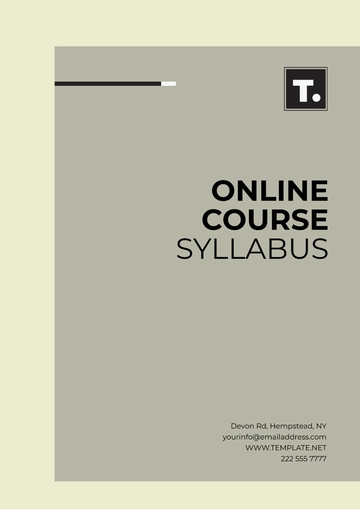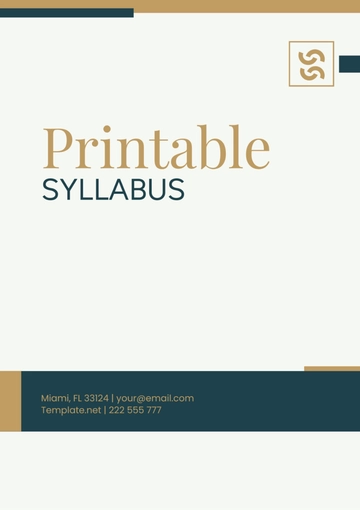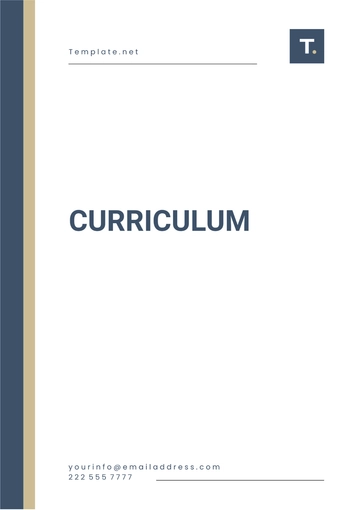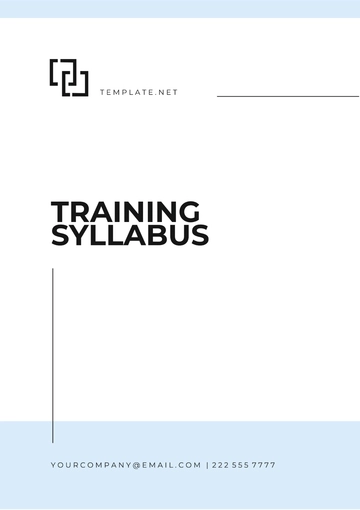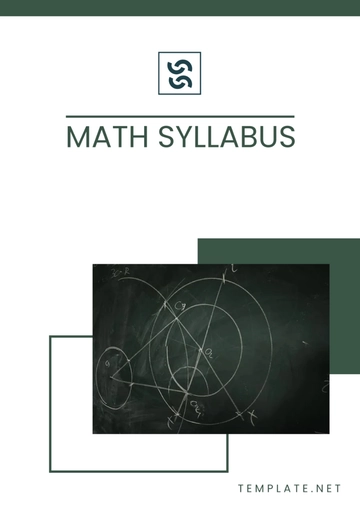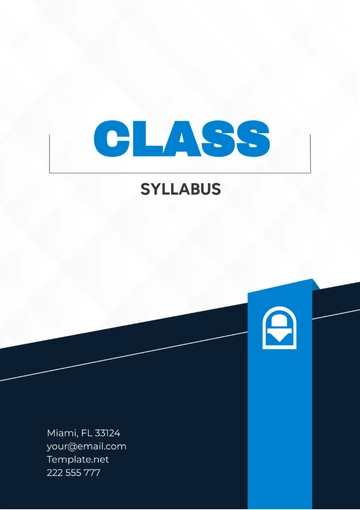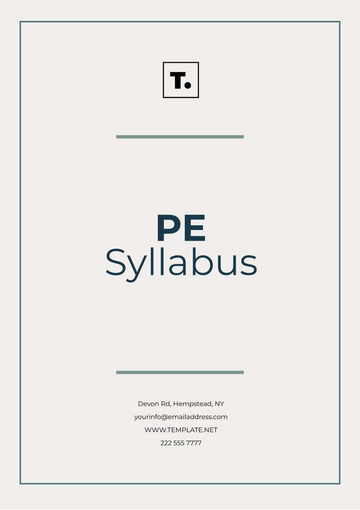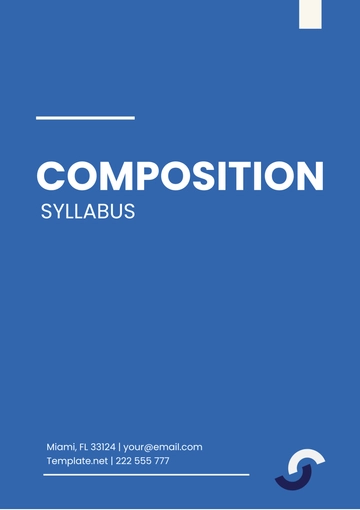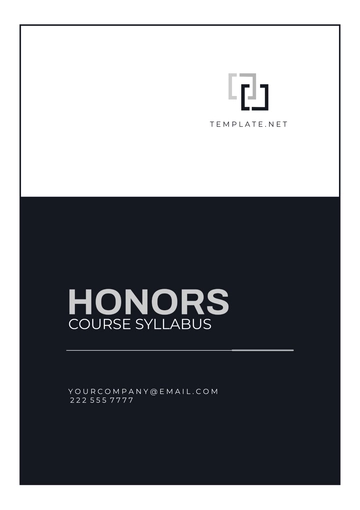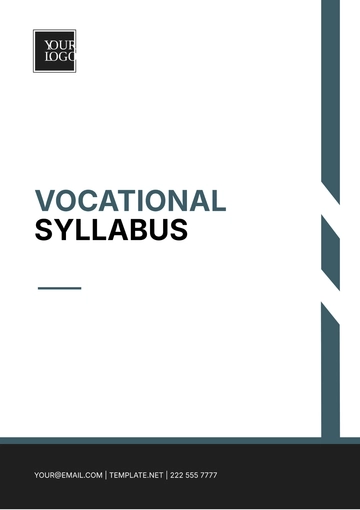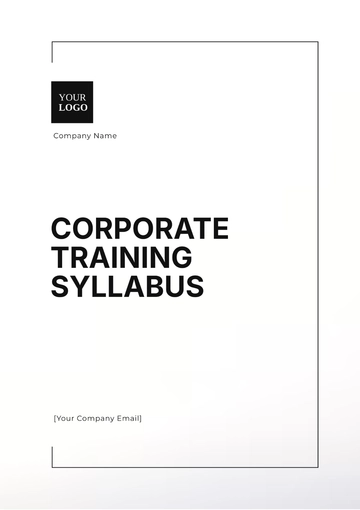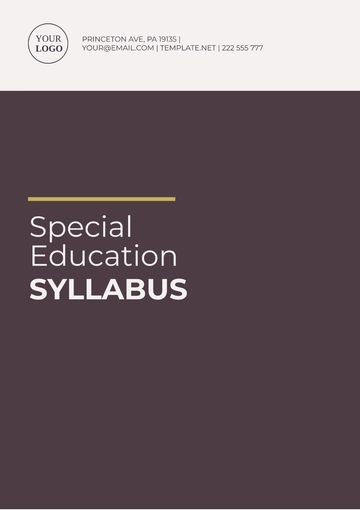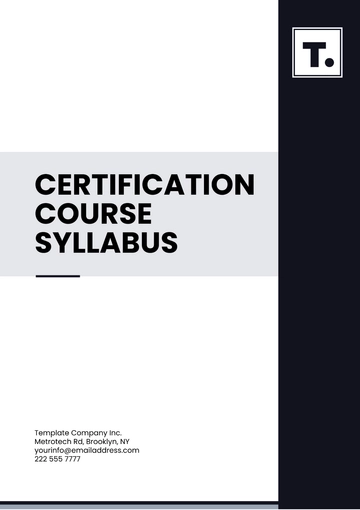Free Victimology Syllabus
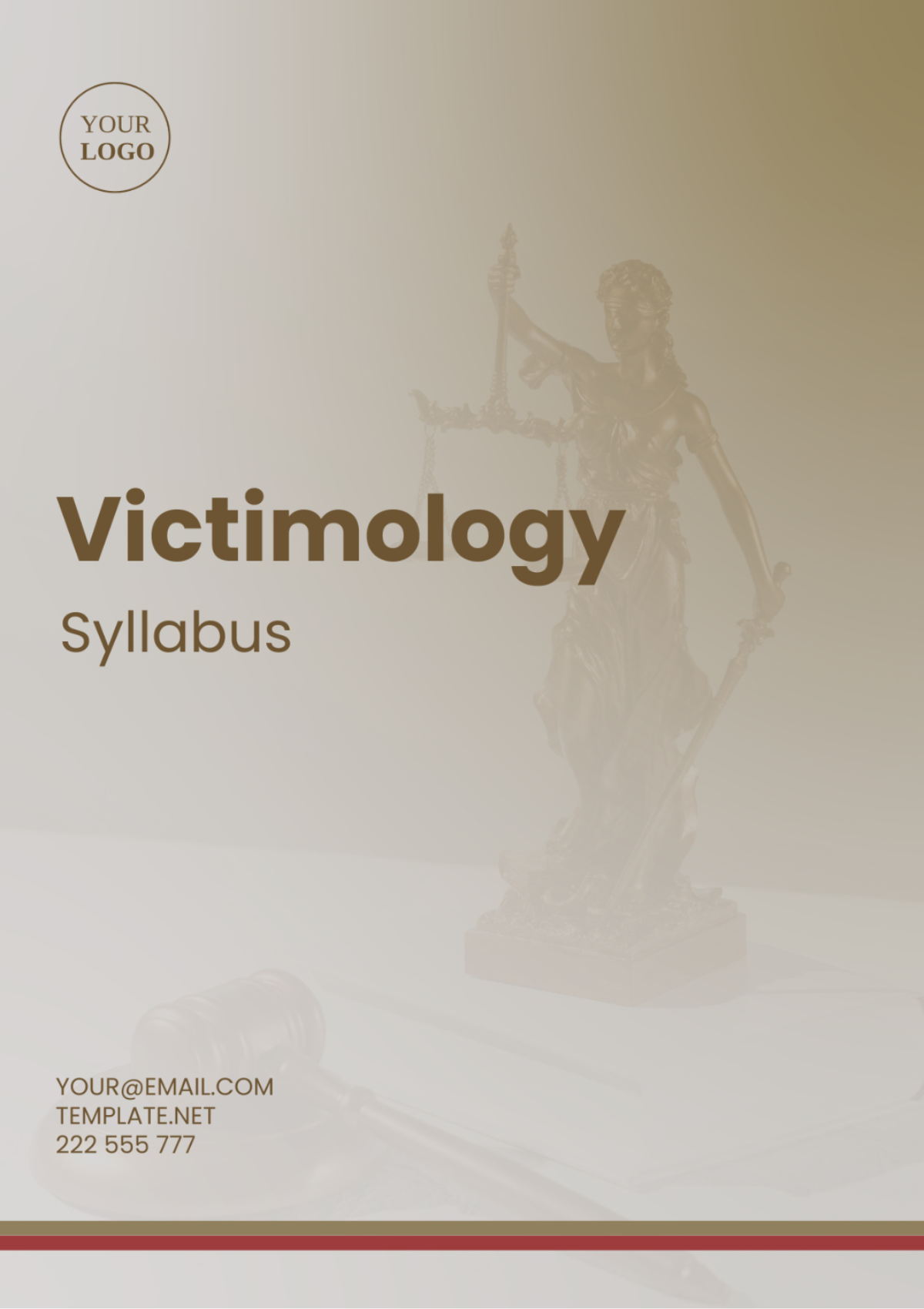
Victimology Course
Course Title | [COURSE TITLE] |
Course Code | [COURSE CODE] |
Office Hours | [OFFICE HOURS] |
Class Location | [CLASS LOCATION] |
Class Time | [CLASS TIME] |
Class Duration | [DATE] - [DATE] |
1. Course Description
This course delves into the study of victims of crime and trauma, their experiences, rights, and societal responses. Students will engage in a deep and comprehensive study of diverse phenomena, understanding the intricacies of victimization from multiple perspectives.
2. Instructor Information
Instructor: [YOUR NAME]
Email: [YOUR EMAIL]
Organization: [YOUR COMPANY NAME]
3. Learning Objectives
Understand the origin and development of Victimology studies.
Comprehend the various forms of victimization and its impact on victims.
Appreciate the role of the legal system, advocacy, and societal responses in helping victims.
Develop a critical perspective on victims’ rights, restorative justice, and various support mechanisms.
Analyze real-world cases to understand the complexities in dealing with victims and victimization.
4. Course Schedule
Week | Topic | Assignments |
|---|---|---|
1 | Introduction to Victimology | Reading assignment |
2 | Forms of Victimization | Weekly reading and quiz |
3 | Impact on Victims | Case study analysis |
4 | Legal System and Advocacy | Reading response paper |
5 | Restorative Justice | Group debate |
6 | Support Mechanisms | Presentation preparation |
7 | Real-world Case Analysis | In-depth case study presentation |
8 | Mid-term Review | Mid-term essay preparation |
9 | Victims' Rights | Reading reflection |
10 | Societal Responses | Class discussion |
11 | Victimology in Practice | Analysis of documentary film |
12 | Comprehensive Examination | End-of-term exam preparation |
5. Required Reading and Materials
“Victimology: Legal, Psychological, and Social Perspectives” by Wallace & Roberson.
“Victims of Crime” by Spalek.
“Handbook of Victims and Victimology” by Walklate.
“Recovering from Criminal Victimization: A State-of-the-Art Manual” by Karmen & Winkel.
Relevant media articles, court case transcripts, and documentary films to be provided throughout the course.
6. Assignments and Assessments
Weekly reading assignments and quizzes.
In-depth case study analysis and presentation.
Mid-term essay on specified victimology topics.
Classroom participation, including debates and discussions.
End-of-term comprehensive examination.
7. Course Policy
Strictly adhere to all institutional rules against plagiarism and academic dishonesty.
Regular attendance is mandatory.0
Stay respectful towards others' views during discussions and debates.
All assigned coursework must be submitted by the designated due dates.
Misconduct or disruptions during classroom hours will not be tolerated.
8. Grading Policy
Component | Weight |
|---|---|
Assignments | 30% |
Class Participation | 20% |
Mid-term Essay | 20% |
End-of-Term Exam | 30% |
Disclaimer
While every effort has been made to ensure the accuracy and completeness of the syllabus, unforeseen circumstances may necessitate changes to the course structure, assignments, or schedule. The instructor reserves the right to modify the syllabus as needed to enhance the learning experience or address emergent issues. Any alterations will be communicated promptly to students through official channels. Your understanding and cooperation are appreciated as we strive to deliver a high-quality educational experience.
- 100% Customizable, free editor
- Access 1 Million+ Templates, photo’s & graphics
- Download or share as a template
- Click and replace photos, graphics, text, backgrounds
- Resize, crop, AI write & more
- Access advanced editor
Introducing the Victimology Syllabus Template from Template.net! Crafted for educators, this editable and customizable resource streamlines syllabus creation. Tailor content effortlessly using our Ai Editor Tool. Elevate teaching experiences with ease. Simplify syllabus design today with Template.net's user-friendly solution.


